Autosomal recessive inheritance
Autosomal recessive inheritance means that the faulty gene is on an autosome (any chromosome other than the sex chromosomes) and that both copies need to be faulty to cause sight loss
Search results
Autosomal recessive inheritance means that the faulty gene is on an autosome (any chromosome other than the sex chromosomes) and that both copies need to be faulty to cause sight loss
Researchers discovered a method to reduce Luxturna injection-related inflammation, improving safety and potentially preventing chorioretinal atrophy.
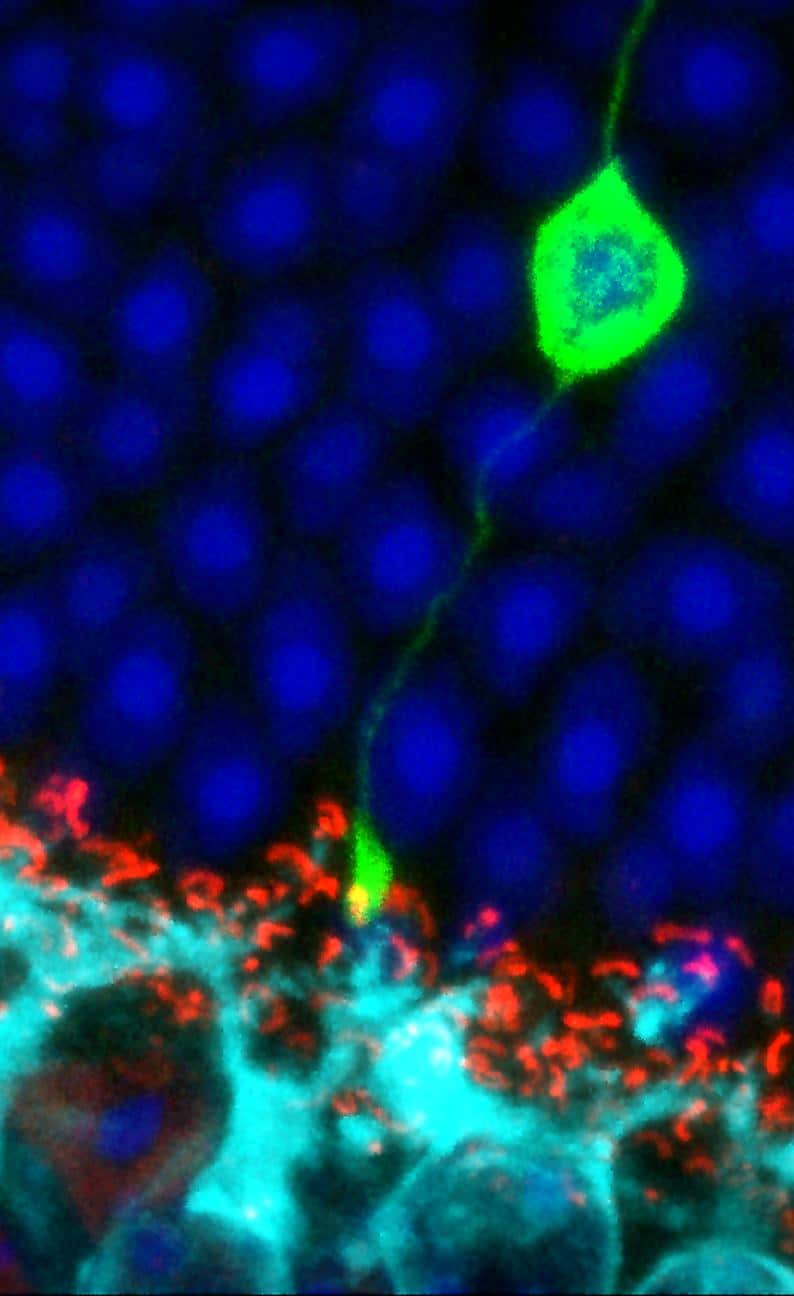
Stem cells are a special type of cell, which under the right conditions can be encouraged to grow into any other type of cell in the body, including retinal cells (rods, cones and retinal pigment epithelial cells).
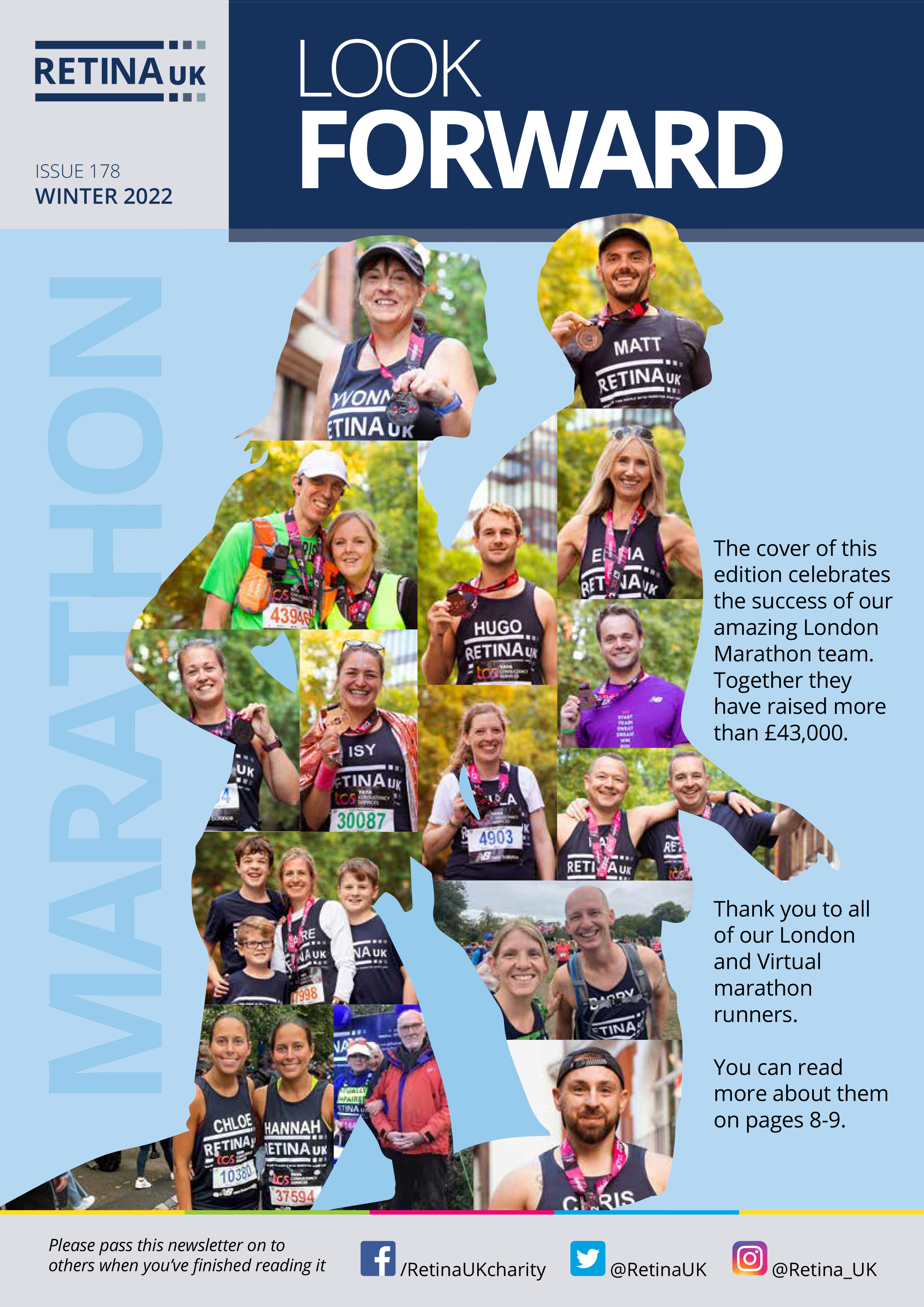
The cover of this edition celebrates the success of our amazing London Marathon team. Together they have raised more than £43,000.

We provide funding for innovative, high quality research projects investigating the causes and potential treatments for all forms of inherited retinal disease.
A round-up of the latest research into inherited retinal conditions - February 2024.
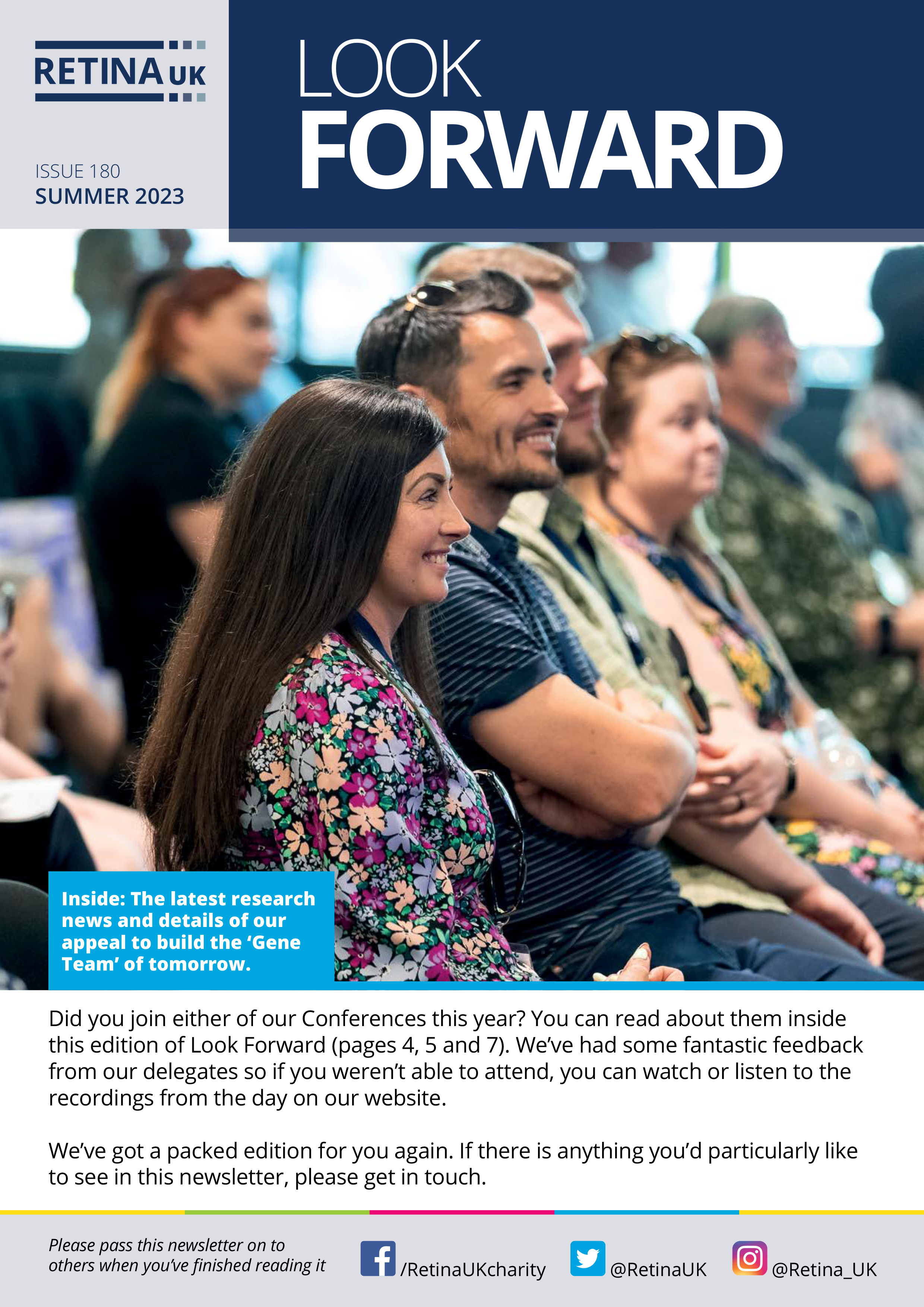
Did you join either of our Conferences this year? You can read about them inside this edition of Look Forward. We’ve had some fantastic feedback from our delegates so if you weren’t able to attend, you can watch or listen to the recordings from the day on our website.
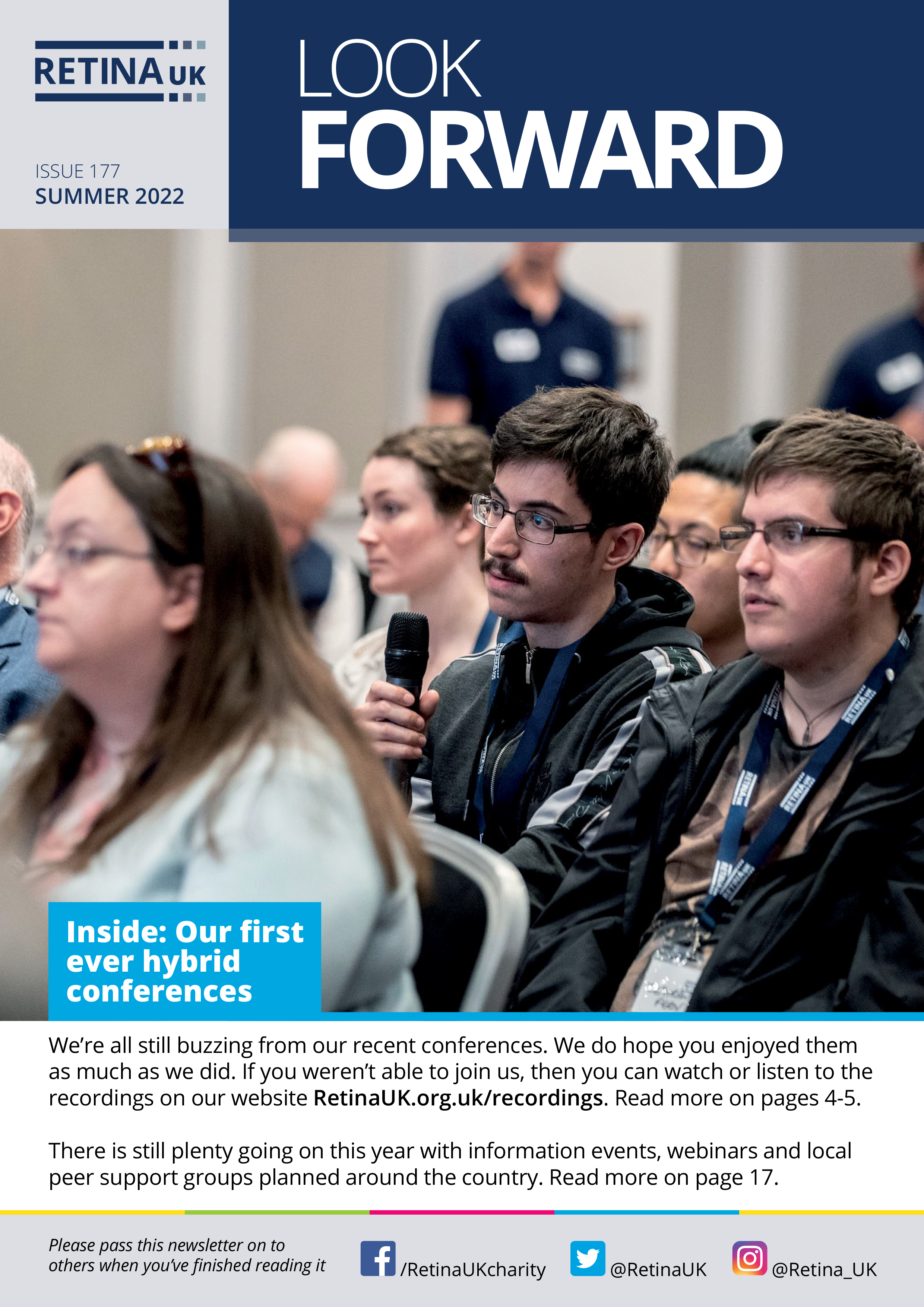
We’re all still buzzing from our recent conferences. We do hope you enjoyed them as much as we did. If you weren’t able to join us, then you can watch or listen to the recordings on our website.
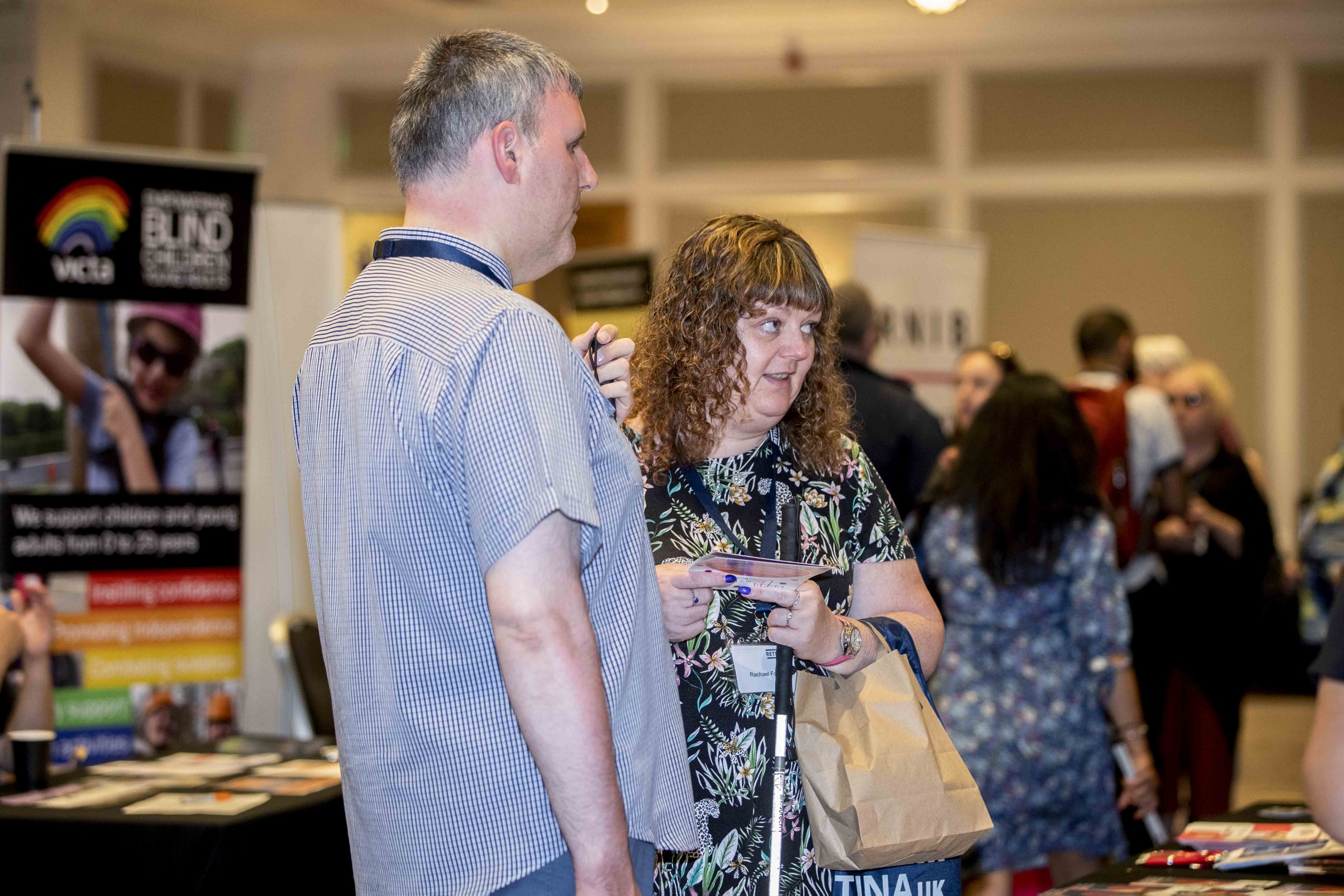
Inherited retinal dystrophies (IRDs) are the leading cause of blindness in working-age people in the UK, and children as young as eighteen-months are regularly diagnosed.
Despite the knock-on effects of the pandemic, there’s been a lot going on this year in the world of research! Here are snapshots of a few stories that have appeared in the Research News section of our website in 2022.